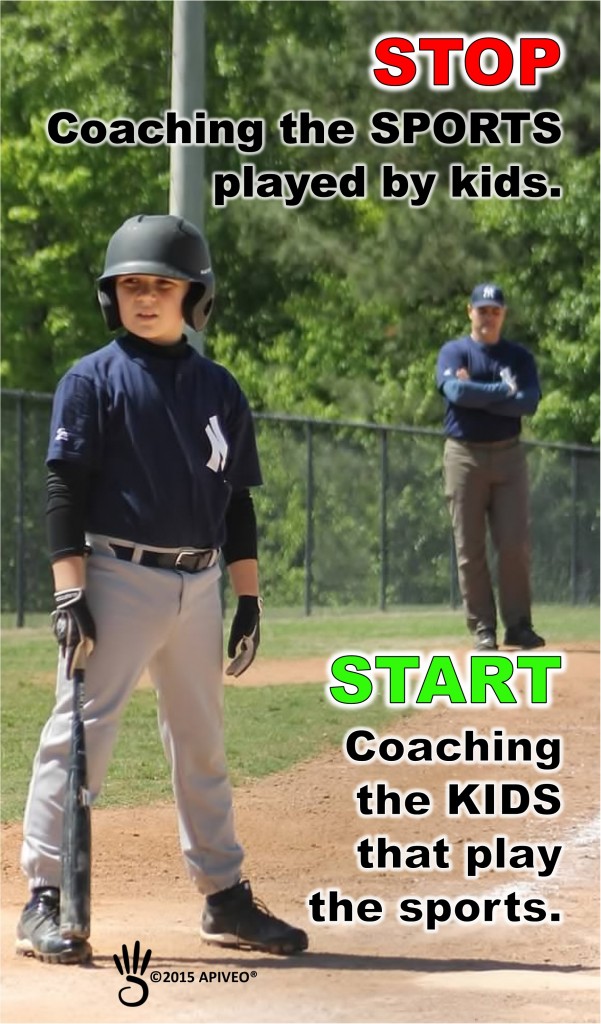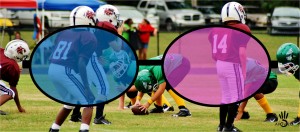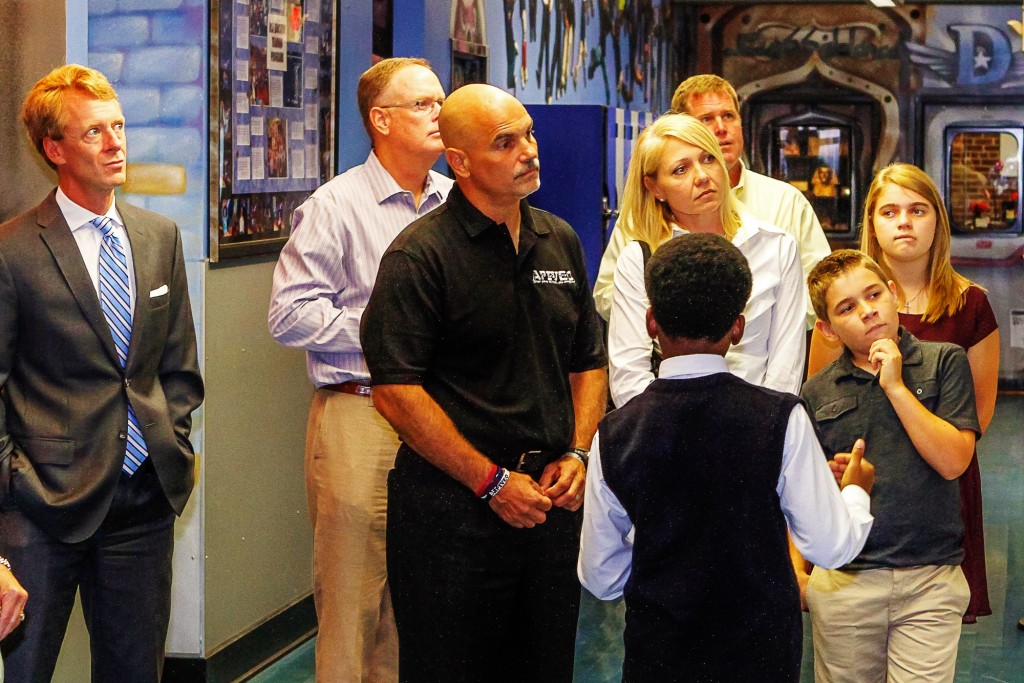(this blog was previously published on the TeamSnap blog)
I am a crybaby. Sometimes, I cry when I’m inspired or sad. Sometimes, I cry from disappointment or joy. I cried when my high school football team won the state championship. I even cried during an episode of Hannah Montana that I watched with my then 5-year-old daughter.
I’m sensitive, and a lot of things make me cry, especially the things I care deeply about. Tears are an expression of how I feel, and I don’t hold them back. In fact, I recently presented a leadership award to a 9-year-old athlete with tears in my eyes. I had to stop a few times during my speech to settle my voice. I am happy to report that during my speech, not one person attending shouted, “Suck it up, big boy. There’s no crying in award presentations!”
Why is it that that when kids cry during sports, they are labeled “crybabies”? When a kid cries, it seems to be some horrible indication of weakness. What I find most surprising is that the parents are usually the ones that get the most upset and embarrassed when their child cries.
We spend countless hours coaching and encouraging our kids to work hard and give it their all. Before games, we preach about having fun, making an effort and believing in yourself. It’s a fact of life that things don’t always go the way we plan. We will all experience the pain of failure. We won’t always make the tackle or record the strikeout. Throughout our lives, reality will often fall short of expectations regardless of preparation or how much we believe in ourselves.
Why cry? Because it hurts!
I have coached kids between 5 and 12 years old for many years. Each season I have been blessed with a few kids who work so hard and care so much that they cry when they fall short of what they expect of themselves. Here is a conversation I had with our pitcher after he hit two batters and allowed five runs in one inning. To set the stage, our pitcher came into the dugout in tears. His father immediately gave him a stern talking to and essentially, if not literally, told him to “suck it up.” I went over and sat next him on the bench.
Me: “Are you OK?”
Pitcher: (Sobbing loudly)
Me: “Are you tired of hearing that there is no crying in baseball?”
Pitcher: (Sobbing slowed)
Me: “What would you say if I told you that’s a lie? There IS crying in baseball. After all, there’s crying in life right? I cry sometimes myself and I’m a tough old man.”
Pitcher: (sobbing stopped and he looked directly into my eyes)
Me: “When you really care about something, and it doesn’t work out; it’s OK to cry. It shows how much you care. One of the things I like most about you is how much you care. Don’t ever stop caring that much about baseball and what you have to offer to your team. Are you OK?”
Pitcher: “Yes, sir.”
Me: “You can keep crying if you have to, but I need you to finish it up soon because we need you. The game is not over, and your team needs you.”
I’ve had similar conversations with kids from dozens of teams and in dozens of situations. After each conversation the child felt accepted and understood, which enabled him or her to accept, own and grow from his or her failure and frustration instead of hiding because of the fear of ridicule. Failures can be the signposts on our journey to success if we read them, understand them and take action. Pretending failures don’t matter and bottling up the emotions is not the way to build strong and emotionally balanced kids.
I am a crybaby because I care … just like the kids I get to coach.

 We teach our kids to not listen to what others say about them yet nearly everything they do is graded or evaluated by someone. “If it’s not important then why is it important?” is an interesting paradox. Some of this confusion is eliminated when “you consider the source.” In other words, knowing if the person that made a statement is or is not qualified to make that statement. While this is often true it still doesn’t give a steadfast rule on who and what we should or should not listen too. Ironically, some of the most unlikely people will share some of the most profound insights at the most unexpected time.
We teach our kids to not listen to what others say about them yet nearly everything they do is graded or evaluated by someone. “If it’s not important then why is it important?” is an interesting paradox. Some of this confusion is eliminated when “you consider the source.” In other words, knowing if the person that made a statement is or is not qualified to make that statement. While this is often true it still doesn’t give a steadfast rule on who and what we should or should not listen too. Ironically, some of the most unlikely people will share some of the most profound insights at the most unexpected time. Each time we honor one of these amazing kids I get to stand up and share their leadership story with hundreds, and sometimes thousands of people. When it comes to APIVEO; I am the tip of the spear. I am the face and voice of APIVEO. Leaders are the tip of the spear in their organizations, teams and groups. The kids we celebrate through APIVEO are the “tip of the spear.” Our Pastors are the tip of the spear in our churches; our coaches are the tip of the spear in our youth sports.
Each time we honor one of these amazing kids I get to stand up and share their leadership story with hundreds, and sometimes thousands of people. When it comes to APIVEO; I am the tip of the spear. I am the face and voice of APIVEO. Leaders are the tip of the spear in their organizations, teams and groups. The kids we celebrate through APIVEO are the “tip of the spear.” Our Pastors are the tip of the spear in our churches; our coaches are the tip of the spear in our youth sports. A leadership team (a.k.a. leadership by committee) can lead to confusion, contempt and even worse, compromise. I know it’s not politically correct to call compromise bad, but all too often, sound and decisive leadership decisions are watered down for the sake of compromise. Many “win-win” situations turn into to “lose-lose” outcomes because of this.
A leadership team (a.k.a. leadership by committee) can lead to confusion, contempt and even worse, compromise. I know it’s not politically correct to call compromise bad, but all too often, sound and decisive leadership decisions are watered down for the sake of compromise. Many “win-win” situations turn into to “lose-lose” outcomes because of this.